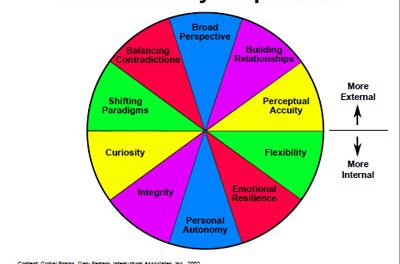Isn’t it fascinating when things don’t go according to plan, when an unanticipated anomaly or counter-intuitive occurrence shifts the landscape, revealing new, often unimagined possibilities.
Isn’t this what happened in the last US presidential election. Yes, it had to do with the bold, 50-state strategy that defied the conventional wisdom of red and blue fortresses with a few neutral states in play. And yes, it had something to do with a shift in shared values and concerns.
Yet for a moment, something else peaked through, something else was recognized and respected, although not as clearly articulated by either the press or the campaigns. Particularly in moments of stress or crisis, individuals self-consciously re-examine their deepest values and principles, with the opportunity to redefine or reprioritize their most personal commitments and basis for action. For an instant in time, a few folks viewed the entire country as hundreds of millions of “free agents.”
Think a minute. We have always, or at least publicly, held the highest regard for men and women of principle or for principled stands. Isn’t “integrity” the consistent, dependable, and transparent adherence to clearly stated values? There is a subtle yet decisive key to engagement here, but not what we might expect at first. For this popular and enduring concept of integrity frequently determines—consciously or unconsciously—how we work and more important who we choose to work with; doors are opened or closed at this point before the first step is taken. Don’t we prefer to work with those who share our own values and battle with those who do not? Isn’t the most efficient course of action to concentrate resources on identifying and recruiting those who already have the same values?
Possibly efficient; ultimately liberating or transformative? No.
At critical junctures, people choose with various levels of consciousness the values, principles, relationships, obligations, expectations that define their actions, in the ambiguity of the moment in which right strives with right or the lesser of two evils appears as the “only” choice. This is the wild card of the deck, the ever-present potential for dramatic change. For lack of a better term, I’m calling it intrinsic integrity. Where the “buck stops.”
Intrinsic integrity is the irreducible liberty or freedom of each individual to face, with open eyes, the entirety (the wholeness) of the situation before them, in all its complexity, and to place their lives on the line with the best of what can be known, but the certainty that their action is required and will somehow make a difference.
As a pattern of engagement, intrinsic integrity is the gateway to new, enlivening decisions, our own decisions as well as the decisions of others, most importantly because it dramatically enlarges the potential circle of “others” with whom we might discover common cause.


